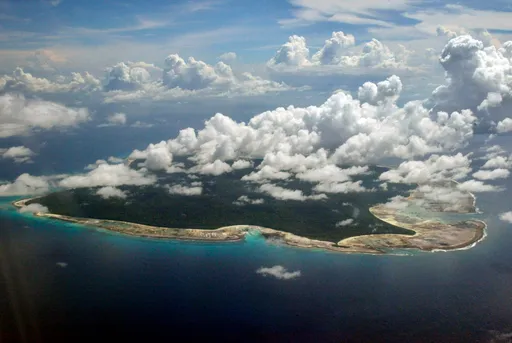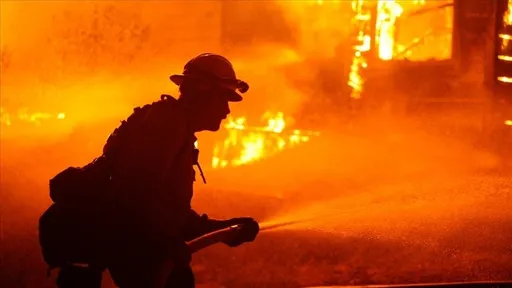Several hundred protesters have staged a rally through central Tunis to demand a return to parliamentary democracy after a July power grab by President Kais Saied.
The march was tightly marshalled by security forces on the ground and an interior ministry surveillance drone overhead, AFP journalists reported.
Most of the protesters were supporters of the religious-leaning Ennahdha party, which formed the largest bloc in parliament before its dissolution by the president.
Saturday's protests may provide an indication of how the security services, many of whose leadership are newly appointed by Saied, will handle public opposition to him.
Police appeared to be treating both sets of protesters equally, standing between the two camps outside the ornate belle epoque theatre on Habib Bourguiba avenue.
READ MORE:If Tunisia falls, democracy dies in the Arab world
'We want legitimacy'
"The people want the collapse of the coup," the protesters chanted. "We want legitimacy."
“No to coup against state institutions", “No to retracting from legitimacy” and “The power belongs to the people" were written on banners waved by the demonstrators.
An independent member of parliament, Ayyad Al Loumi, who took part in the protest, told Anadolu Agency that the rally was a show of opposition to Saied’s “coup”.
"The basic request today is to end the coup, to end the exceptional measures, and to end the suspension of parliament," he said.
He added, "The coup against the constitution made the president isolated, and he cannot run the state on its own."
Amira, a protester, said she rejects the “circumventing of the constitution and the disruption of the functioning of state institutions."
A few dozen Saied supporters held a counterdemonstration.
READ MORE:The four uncertainties facing Tunisian democracy
Saied stands his ground
On July 25, Saied sacked the government, suspended parliament, removed lawmakers' immunity and put himself in charge of all prosecutions.
Saied has renewed the measures for a second 30-day period, and has yet to respond to calls for a roadmap for lifting them.
Saied has rejected accusations of a coup and his supporters have presented his moves as an opportunity to reset the gains of Tunisia's revolution and purge a corrupt elite.
Saied insists his actions are guaranteed by Article 80 of the constitution, which stipulates the head of state can take "exceptional measures" in case of an "imminent danger" to national security.
Meanwhile, with their immunity lifted, some parliamentarians have been arrested, while numerous Tunisians have been stopped from leaving the country.























